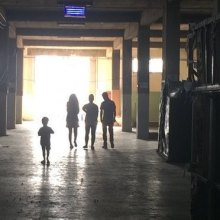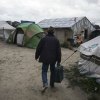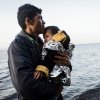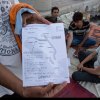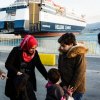
Child refugees in Europe 'forced to sell bodies' to pay smugglers
Child refugees in Europe 'forced to sell...
Unaccompanied child refugees in Greece desperate to reach the UK and other parts of northern Europe are being forced to sell their bodies in order to pay smugglers to help them with their journeys, according to a new report from Harvard University.
The report, from Dr Vasileia Digidiki and Prof Jacqueline Bhabha at the university’s centre for health and human rights, reveals what they describe as a “growing epidemic of sexual exploitation and abuse of migrant children in Greece”.
The report says child refugees from conflict zones including Syria, Afghanistan and Pakistan trying to make their way across Europe are being stranded in Greece, unable to afford the fees charged by smugglers to move them.
As a result some of the children are turning to selling sex to try to fund their journeys.
Report author Digidiki said: “This emergency can no longer be ignored. We can no longer sit idle while migrant children are abused and forced to sell their bodies in broad daylight and plain sight in the heart of Athens simply to survive.
“It is our responsibility as human beings to face this emergency head on and take immediate action at every level to put an end to this most heinous violation of dignity and human rights.”
The report found that the average price of a sexual transaction with a child is €15 (£12.50).
The Home Office has declined to comment on how many child refugees it has transferred recently under section 67 of the Immigration Act, known as the Dubs amendment, where a certain number of vulnerable unaccompanied refugee children will be transferred to the UK.
Charities working to support child refugees across Europe who want to seek sanctuary in Britain have criticised the government for closing the Dubs scheme in March after taking 350 children via the programme. Campaigners had hoped up to 3,000 children would benefit under the scheme.
According to Greek child protection agencies in 2016, they received referrals for 5,174 unaccompanied migrant children. It is this group who are at the highest risk of sexual exploitation. But at the end of December 2016 only 191 of them had been transferred to other European countries. Almost 50% of unaccompanied children in Greece are awaiting relocation to specialised, child-friendly accommodation.
While the report finds that Greek authorities have made some appropriate provision for vulnerable migrant children in specialised camps and centres, many do not have access to these safer facilities and are at risk of exploitation and violence.
The report calls for an end to the detention of child migrants in Greece, more specialised shelters for children who have been abused, an improved legal guardianship system, better data collection relating to child refugees, independent translators and separate areas in the refugee camps for children and families.
It concludes that there has been “a dramatic failure of protection affecting significant numbers of child migrants and refugees within Europe today”.
It also identifies rape and other forms of sexual assault of young children in the camps, an increase in child marriage and blackmail of some children who have been abused and had humiliating photos taken of them by mafia gangs who blackmail them by threatening to send the photos to unaccompanied children’s families back home.
This is a summary of the report, for details go to:
 Reload
Reload